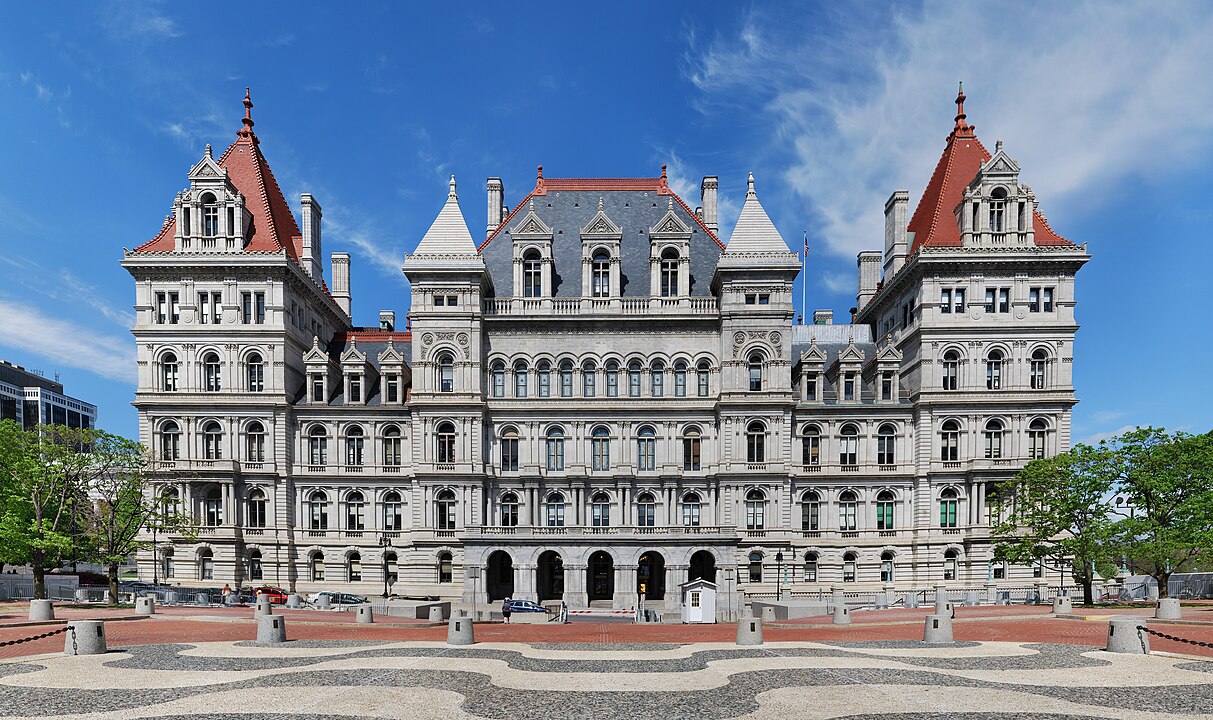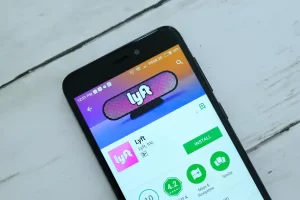Photo: New York State Capitol building in Albany, NY; via Wikipedia.
For decades, New Yorkers have been able to anonymously report suspected child abuse or neglect through the state’s hotline. That could soon change under a bill passed by lawmakers earlier this year, writes Raga Justin in a report for Albany news outlet, Times-Union.com today.
The legislation, now awaiting Governor Kathy Hochul’s review, would require callers to identify themselves when making voluntary reports to the Statewide Central Register of Child Abuse and Maltreatment. While a caller’s identity would remain confidential and protected from public disclosure without a court order, they would no longer be able to make entirely anonymous claims.
Domestic Violence Advocates Say Anonymous Reports Are Weaponized
Supporters of the bill argue the change is long overdue. Dale Margolin Cecka, an Albany Law School professor who directs the Family Violence Litigation Clinic, said abusers in custody disputes often exploit the system by filing anonymous, false claims to harass their former partners.
“It’s a 100 percent part of an abuser’s playbook to do this,” Cecka said. “It creates these fishing expeditions, because if you’re anonymous, you’re not giving any context. You’re just making an allegation. It’s literally the easiest thing you can do to torment somebody.”
Cecka explained that even when child welfare officials find allegations to be unfounded, the investigations themselves can leave lasting effects on families. In some cases, the visit from Child Protective Services may remain visible in court records, further harming parents who were never proven to have done anything wrong.
Impact on Families and Children
The debate highlights what advocates call “family policing,” the idea that unnecessary child welfare investigations can cause more harm than good, disproportionately impacting low-income and minority families. Studies have shown that children removed from their homes, or even subjected to repeated investigations, often face long-lasting psychological and emotional consequences.
State Sen. Jabari Brisport, a Brooklyn Democrat and co-sponsor of the bill, said other states such as Texas and California have already ended anonymous reporting without seeing negative impacts on child safety. “Those concerns haven’t materialized in any of the states that have passed this,” he said.
Concerns from Child Welfare Officials
While top officials at the Office of Children and Family Services have pushed for reforms that move away from investigations toward family support, they have expressed hesitation about completely banning anonymous reports. In a June letter, OCFS Commissioner DaMia Harris-Madden said she worried the change could prevent legitimate reports of child abuse from being made.
The agency has not taken a formal position on the legislation. A spokesperson said it would not comment on pending bills.
Governor Hochul, who has presented herself as a supporter of domestic violence survivors, has yet to indicate whether she will sign the measure into law.
For many survivors, the trauma is compounded when institutions meant to protect them fail. Or worse, when systems are misused against them. If you or your family have been harmed by institutional negligence or abuse, you may still have legal rights. Survivors often say the true value of pursuing justice is not only financial but also being heard, validated, and empowered to move forward. Learn more in our Institutional Sexual Abuse Lawsuit Guide and start your free case review process by filling out the brief form below.




